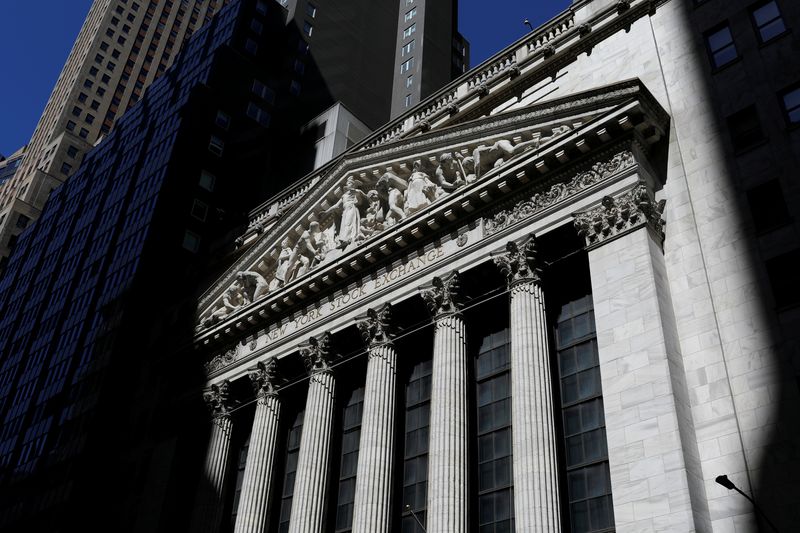By Jamie McGeever
ORLANDO, Florida (Reuters) -The past month in markets has been littered with momentous events: a record burst in U.S. stock market volatility, near-confirmation from the Federal Reserve that U.S. interest rates will soon be cut, and the biggest ever one-day crash in a listed company's market cap.
But one constant has been the resilience of bonds, which are once again fulfilling their role as the classic hedge in a traditionally diversified portfolio. This is a sign that the economic landscape is shifting and that investors may increasingly move away from equities - which are near record highs and, historically, on the expensive side - towards fixed income.
If so, the 40% weighting of bonds in the traditional '60-40' investment portfolio is going to have to carry a heavy load.
To be sure, bonds' strong performance didn't start in the last few weeks. Yields across the U.S. Treasury curve have generally been falling since April, as asset managers have been steadily building their long Treasury futures positions for most of this year to new record-high levels.
According to Bank of America, global bond funds have attracted $425 billion of inflows this year, around $40 billion more than global equity funds. Investment Company Institute figures show that U.S. mutual funds' year-to-date bond inflows are currently around $315 billion, nearly four times more than equity inflows.
This flight to bonds suggests that investors have been positioning for a breakout in fixed income returns that hasn't yet occurred. The ICE BofA Treasury index is up only 3% this year while the S&P 500 is up over 15%, even after the recent turbulence.
But the balance appears to be shifting.
RETURN TO 'NORMAL'?
The theory behind the standard balanced portfolio is that the 60% allocation to equities provides the bulk of returns, while the 40% slice of bonds can offer downside protection in times of market volatility and economic uncertainty.
But this only works if there is a negative correlation between equities and bonds when markets get rocky. And until recently the simple correlation between the S&P 500 and Treasuries was overwhelmingly positive, as investors fretted over elevated interest rates more than growth.
But it has now flipped.
Strategists at Truist Advisory Services note that core bond returns were positive during the S&P 500's 8.5% drawdown in the three weeks through Aug. 5. In fact, the last time stocks fell more than 5% and bonds rose was more than four years ago.
True, one month does not make a trend. But markets may be at a turning point: the root cause of equity market angst is no longer 'higher for longer' borrowing costs but rather a 'hard landing'. Growth is now the worry, not inflation.
Consider how dramatically markets have reacted to modestly negative economic data. Figures on Tuesday showed that U.S. manufacturing activity shrank in August, as it has done almost every month for the last two years. That was hardly a shock, but it sparked a stampede out of stocks and into bonds.
The S&P 500's fall of 2.1% was the biggest one-day drop following an ISM data release since October 2022, notes Citi's Stuart Kaiser. And then there was the explosion of volatility in the first week of August related, in part, to a slight uptick in U.S. unemployment. The risk/reward balance of holding equities has deteriorated as the economic slowdown becomes clearer.
So what happens if the soft landing fails to materialize and the economy tips straight into recession? History suggests equities will fall and Treasuries will rise.
And if growth slows but the economy manages to skirt recession? History indicates equities will probably rise, but bonds will too. Either way, bonds seem to be the safer bet.

It is probably safe to say that if the 60-40 portfolio struggles in the coming months, it won't be bonds' fault.
(The opinions expressed here are those of the author, a columnist for Reuters.)